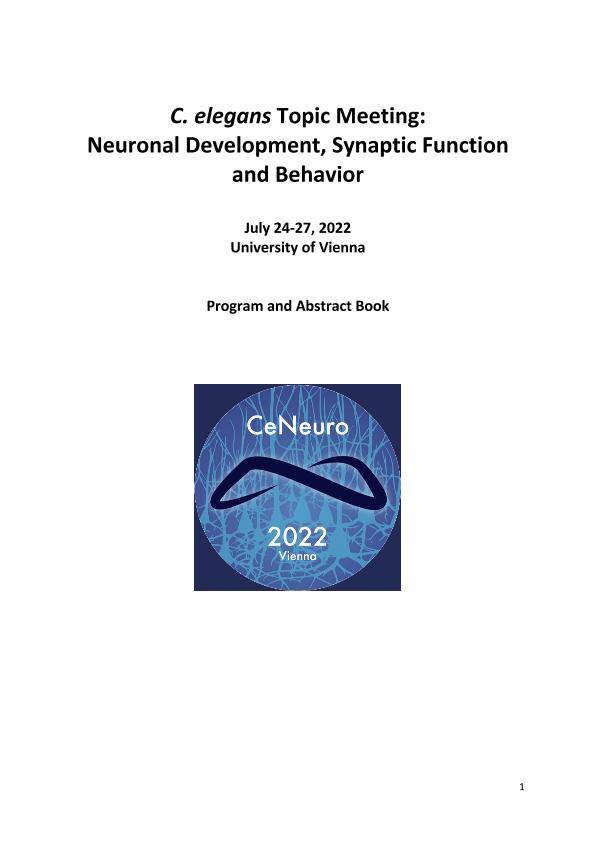Evento
Bacterial diets are able to modulate life-history treats in C. elegans models of neurodegenerative diseases
Tipo del evento:
Congreso
Nombre del evento:
C. elegans Topic Meeting: neuronal development, synaptic function and behavior
Fecha del evento:
24/07/2022
Institución Organizadora:
University of Vienna;
Título de la revista:
C. elegans Topic Meeting: neuronal development, synaptic function and behavior
Editorial:
University of Vienna
Idioma:
Inglés
Clasificación temática:
Resumen
As life expectancy increase worldwide, age-related disorders, such us neurodegenerative diseases (ND), have become more prevalent. Moreover, treatments are only able to attenuate some symptoms, but fail to arrest characteristic neuronal proteotoxicity. Thus, new challenges emerge to science in order to understand molecular basis of these disorders. Lately, the hypothesis that gut microbes affect neurodegenerative diseases through the gut–brain axis is gaining increasing attention and a close relation between the complexity and diversity of gut microorganism and ND has been proposed. The aim of our work was to evaluate the relevance of the microbiota in the progression of proteotoxic-based disorders, assessing the impact of six non-pathogenic bacterial diets on life-history traits in C. elegans models of ND, relative to the standard OP50. In a first approach, we found 2 bacteria, Escherichia coli K12 and E. coli HB101, able to improve locomotion in liquid media, in worm’s model of Parkinson disease (PD) at adult day 4, versus E. coli OP50. Moreover, an age-dependent locomotion improvement, between larva-L4 and adult day 4, was observed in solid media after feeding PD model´s worms with 4 different bacteria versus E. coli OP50. We also observed an increase in the developmental timing of wild-type worms grown in 4 bacteria versus E. coli OP50, but more interesting was the accelerated developmental rate selectively found in models of PD and Huntington disease feed with E. coli BL21 (DE3). In addition, we observed that using E. coli BL21 (DE3) as a food source, L4 larvae of PD models showed a significant increase stress resistance. When the reproductive performance was evaluated, no bacterial diet tested was shown to affect the parameters studied in all worms’ models. In order to discard that the observed effect were due to changes in food intake, the pharyngeal pumping was also evaluated, without finding changes using all bacterial diets as a food source. We are currently evaluating aggregate numbers, lifespan and mitochondrial morphology among others. Our results allowed us to identify bacteria with the ability to drive physiological outcomes and improve health status of C. elegans models of neurodegenerative diseases
Palabras clave:
C elegans
,
Microbiota
,
Gut-brain axis
,
Neurodegenerative diseases
Archivos asociados
Licencia
Identificadores
Colecciones
Eventos(INIBIBB)
Eventos de INST.DE INVEST.BIOQUIMICAS BAHIA BLANCA (I)
Eventos de INST.DE INVEST.BIOQUIMICAS BAHIA BLANCA (I)
Citación
Bacterial diets are able to modulate life-history treats in C. elegans models of neurodegenerative diseases; C. elegans Topic Meeting: neuronal development, synaptic function and behavior; Viena; Austria; 2022; 50-50
Compartir




